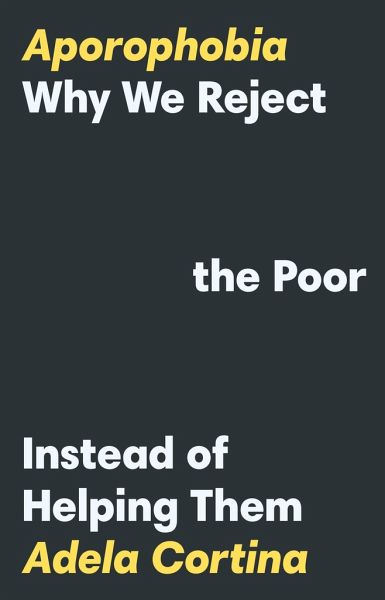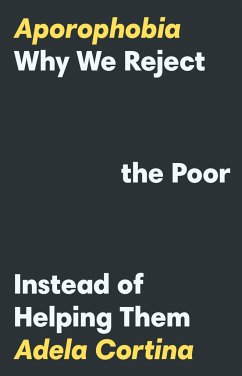
Aporophobia
Why We Reject the Poor Instead of Helping Them
Versandkostenfrei!
Versandfertig in 2-4 Wochen
34,99 €
inkl. MwSt.
Weitere Ausgaben:

PAYBACK Punkte
17 °P sammeln!
"In a world built on the political, economic and social contract, the poor seem to break the rules of give and take. As a result, there is a growing tendency to exclude them. The problem is not one of xenophobia, since the enthusiastic reception of foreign tourists contrasts with the rejection of refugees and immigrants. We're talking about aporophobia, rejection of the poor. The poor person is a nuisance, even within one's own family. Aporophobia is a daily attack on the dignity and well-being of people and democracy. It also has a universal reach: all human beings are aporophobes, and this h...
"In a world built on the political, economic and social contract, the poor seem to break the rules of give and take. As a result, there is a growing tendency to exclude them. The problem is not one of xenophobia, since the enthusiastic reception of foreign tourists contrasts with the rejection of refugees and immigrants. We're talking about aporophobia, rejection of the poor. The poor person is a nuisance, even within one's own family. Aporophobia is a daily attack on the dignity and well-being of people and democracy. It also has a universal reach: all human beings are aporophobes, and this has its cerebral and social roots that can and should be modified if we are to take seriously the key ethical issues of a democratic society that aims to be fair. In this book Adela Cortina exposes one of the most deep-rooted and overlooked moral conflicts of our time, not only to give it a name but also to force us to recognise it and to provide us with the tools to face a reality very much our own"--













